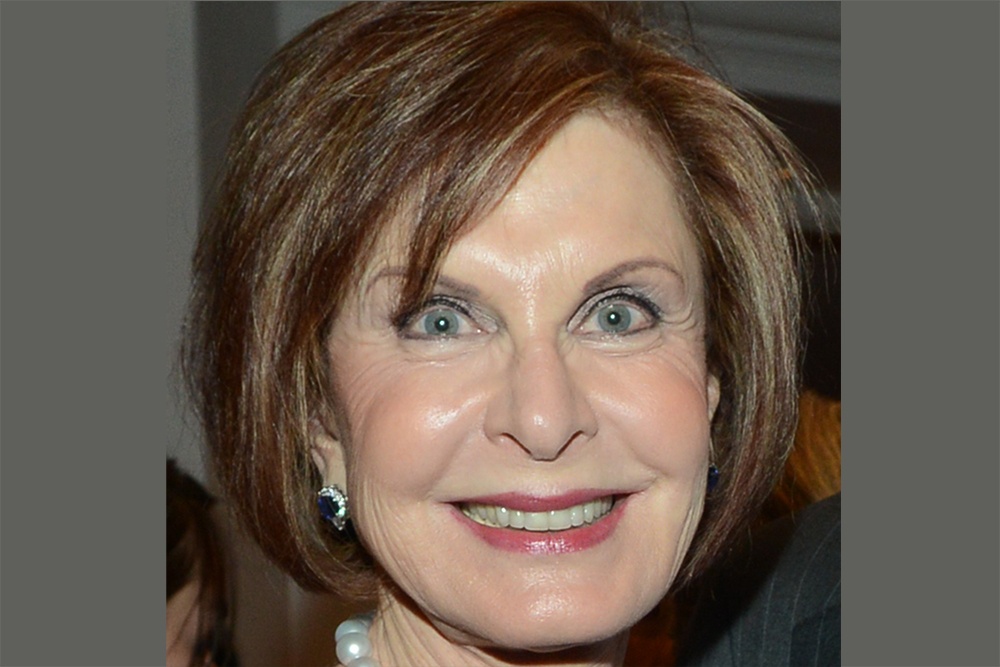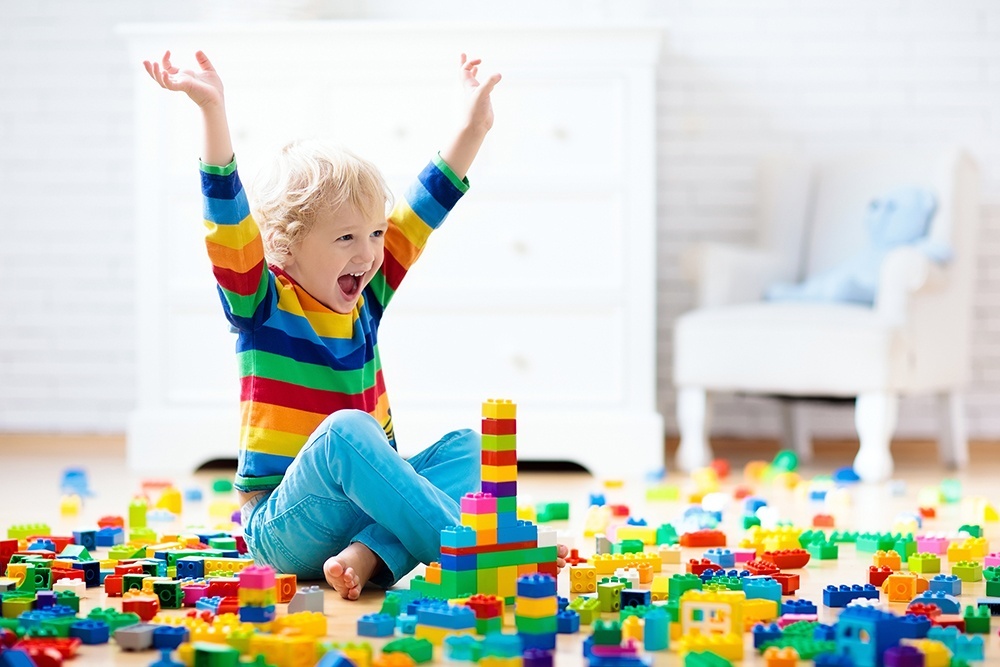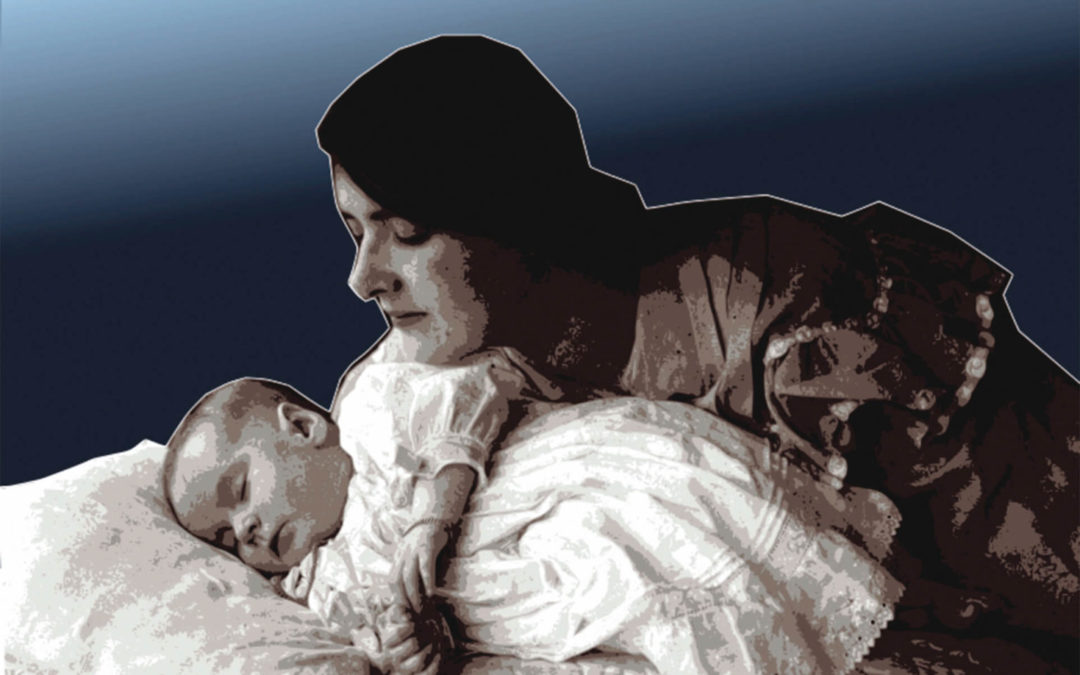
DONOR PROFILE: ROCHELLE LIPTON
Following is the donor profile from our August 2018 Guidelines newsletter, highlighting our devoted supporter and past board president Rochelle Lipton, who passed away earlier this month.
Nearly four decades ago, Rochelle Lipton went to a presentation and book signing by author Susan Isaacs that was a benefit for North Shore Child & Family Guidance Center. With her usual jovial spirit and engaging storytelling, Isaacs, an honorary Guidance Center board member, wowed the crowd, including Lipton.
“It was a very pleasurable event,” says Lipton. “I met some lovely people, and I decided to find out more about the Guidance Center’s work.”
That was a very fortunate day for the Guidance Center, because Rochelle Lipton has been one of our most dedicated supporters for all these years since. She has served in a wide capacity of roles, most notably as the President of the Board of Directors for two terms, from 2001 to 2003 and again from 2003 to 2005, although she was a board member long before that time.
“Rochelle was always a delight to work with,” says Lucille Kantor, a former Board President and longtime Guidance Center supporter. “She was very serious about her responsibilities as president, and she did a wonderful job. Whenever and wherever the need was, Rochelle was right there, and she still is active today. She’s so bright— and beautiful too!”
Prior to her role as president, one of Lipton’s first projects for the Guidance Center was to co-chair an art show with her friends Judy and Roger Hockstein and Linda Lane. Shortly thereafter, she became a member of the development committee and chaired a dinner dance at the American Folk Art Museum in Manhattan. “It was a beautiful evening,” recalls Lipton. “And of course, it was so important to raise funds to support the Guidance Center’s work.”
A Pivotal Event Lipton had just become President of the Guidance Center’s Board of Directors when the fateful events of September 11, 2001 occurred. “This was a very intense time for the Guidance Center,” she says. “So many children had lost a parent; many people lost spouses, or sons and daughters. We also saw firefighters, police officers— everyone was deeply affected.”
The Guidance Center played a huge role in helping these grieving families and others to begin the road to healing. “We had many bereavement and support groups,” explains Lipton. “And we received many grants from places that had never supported us before, like Robin Hood Foundation, which almost never gave grants outside of New York City.”
During 9/11, Marion Levine was the Executive Director of the Guidance Center, and Lipton has high praises for her leadership. “Marion is the most wonderful person on Earth. Her guidance, assistance and steerage took the Guidance Center to amazing places. She was brilliant, and she is the most caring and kind individual. She grew the agency and started to make it what it is today.”
Lipton’s leadership during the 9/11 crisis also gets high marks from current Executive Director Andrew Malekoff.
“In the immediate aftermath of the attack on September 11, 2001, we mobilized our staff to provide a rapid response wherever we were needed in the New York metropolitan area,” says Malekoff. “During this period of time Guidance Center Board President Rochelle Lipton provided stellar leadership in rallying our Board of Directors to develop and support a number of successful fundraising events in New York City to support our work with surviving family members and others who escaped the attack who were living with post-traumatic stress.”
A Legion of Fans According to Andrea Leeds, who served on the Board of Directors under Lipton’s leadership and is still a VP on our Board today, Lipton’s contributions to the Guidance Center are immeasurable. “Rochelle’s ability to be efficient and multitask was evident as she not only presided over our productive meetings, but she was also capable of always serving a wonderful dinner! Moreover, her dedication and compassion to our mission is obvious as she continues to work hard on committees and support our programs. It is always a privilege to work with Rochelle.”
Another fan of Lipton’s is Jo-Ellen Hazan, a Board VP and also former President of the Board. “Rochelle has always been willing to roll up her sleeves and do whatever was needed to get the job done,” says Hazan. “She had and continues to have creative ideas on how to reach out for support and to advocate for children’s mental health. Her heart is always in the right place for the kids and their families.”
Current Board President Nancy Lane says, “Rochelle has the enviable ability to be creative yet practical. Her thoughtful contributions are invaluable. I am delighted that Rochelle has recently become more engaged in committee work. In addition, Rochelle and [her husband] Hal have always been generous with their financial support. The Guidance Center is most fortunate to have their support.”
Although no longer a board member, Lipton’s dedication to the Guidance Center has never wavered, and she continues to participate actively on committees, at events and wherever she is needed. “I’m most proud of being part of such an incredible organization that does such wonderful work,” says Lipton. “What it does is invaluable to our community.” She adds, “The whole thing is about people helping people. If anybody’s in need, the Guidance Center is always there to lend a hand and help.”

Toy Safety in the Pandemic Era
Tis the season of gift-giving, and though many things have changed because of the pandemic, kids are as excited as ever about receiving a bounty of toys!
For parents whose children may have special needs, the good news is that there are many toys that are designed for a variety of developmental and educational profiles—just google “toys for special needs” and you’ll come up with dozens of companies.
As with any year, safety is paramount when choosing toys. The potential dangers are clear: The U.S. Computer Product Safety Commission reports that in 2019, there were an estimated 162,700 toy-related, emergency department-treated injuries and 14 deaths to children younger than 15, with most of the deaths associated with choking on small parts such as small balls, small toy parts and riding toys.
The pandemic has led many people to shop for toys online rather than stores—not a bad thing in and of itself, but it does present a potential problem. “Our concern is that there may be an increase in counterfeit toys out there,” says Joan Lawrence, Senior Vice President, Standards and Regulatory Affairs at The Toy Association, a not-for-profit trade association. “If those sellers skirt the rules on intellectual property [by selling counterfeits], then we worry they may also skirt the rules on safety.”
Her recommendation: Buy toys on a website owned by the toy manufacturer or on a big box retailer website. “Look for verified sellers, whatever marketplace you buy from online,” she says.
While it can be difficult to identify who the verified sellers are, major brands are good bets, because they are likely to abide by safety regulations. Lawrence adds, “Does the seller have its own website? If not, it may be red flag. And if there are typos in the listing or poorly photoshopped images, those are clues that it may have been put together on the fly.”
Another important piece of advice from Lawrence: Parents should always check and follow age guidance on toy packaging. The age-grading isn’t about how smart your child is—it’s safety guidance that’s based on the developmental skills and abilities of children at a given age, and the specific features of a toy.
Following are some more safety tips from The Toy Association:
- Adults should always supervise play, especially for younger children.
- Avoid toys with small parts when shopping for children under age three and children who mouth toys. Test the size of toys and other objects around the home with a Small Parts Tester.
- Check to see that plush (stuffed) toys have age-appropriate features such as embroidered or well-secured eyes and noses for younger children, and seams that are reinforced to withstand an older child’s play.
- Dispose of all unnecessary toy packaging and gift-wrap as soon as possible (piles of discarded gift-wrap can conceal sharp objects and the edges of hard plastic packaging that can cut small fingers).
- Read instructions carefully. Save directions, warranties and assembly hardware.
- Regularly sort through the toy box to discard broken toys.
- Get on the floor and play with your kids! Demonstrating the correct way to use a toy or game is the best way to make sure your child understands how to properly and safely enjoy it.
North Shore Child & Family Guidance Center’s therapists are experts on the use of toys and games to enhance social and emotional growth and well-being, says Paul Vitale, Executive Vice President Finance & Operations at The Toy Association and President of the Board of Directors of the Guidance Center. “I’m proud to be part of an organization that always puts the health, happiness and safety of children at the top of the list.”
Sensory Play Ideas for Children with Special Needs
Here are some great ideas for things to do with your child who may be on the autism spectrum, diagnosed with ADHD or OCD or have any sensory processing disorder, from The Genius of Playwebsite:
- Get Your Beat On
Sounding out words, while critical to language skill development, can sometimes be a challenge− especially if a word has multiple syllables. Turn frustration into fun by putting it to music. Tap/shake an instrument as kids say each syllable. Music can also allow a child struggling to verbalize words a way to express themselves and their understanding.
- Surprise Box
Think of this like a surprise sensory bin. Exploring an unknown object in a safe space can help decrease your child’s discomfort and fear of new unknowns in the future, while also aiding their processing and communication skill development. Try using uniquely shaped or textured objects!
- Puppet Play
Puppets can serve as versatile tools for play and learning. Beyond communicating their emotions, puppets can also be used to practice conversational skills and reinforce learned tasks by having kids teach it to the puppet.
- Big Art
Allowing kids to take movement breaks throughout the day can help them to reset and refocus. Why not turn it into art? Grab some chalk and/or washable markers and let kids use their whole bodies to create larger-than-life designs.
- Basket Toss
Who says a laundry basket is just for dirty clothes? Use it for game time and help build up a child’s gross motor skills in the process.
- Freeze Dance
Movement of any kind is great for helping develop a child’s sense of body awareness and balance. Adding a “freeze” element to your dance party can also support kids’ ability to process, organize, and respond to different sounds.
Sources:
https://www.cpsc.gov/Safety-Education/Safety-Education-Centers/holiday-safety
Vanessa McMullan of the Guidance Center appears on a webinar on Maternal Depression, The Schuyler Center for Analysis and Advocacy Webinar, November 4, 2020

Maternal Depression Rates Rise During Pandemic, By Vanessa McMullan, December 7, 2020
Pregnancy and childbirth are exciting times in a family’s life, filled with joy and awe. For some mothers, however, the situation is far more complex. While many women experience some mild mood changes during or after the birth of a child, 15 to 20 percent of women have more significant symptoms of postpartum depression and other perinatal mood and anxiety disorders or PMADs.
Fifteen to 20 percent of women have more significant symptoms of postpartum depression and other perinatal mood and anxiety disorders or PMADs.
At North Shore Child & Family Guidance Center, we work with moms and pregnant women whose symptoms may include feelings of sadness, irritability, guilt, lack of interest in the baby and changes in eating and sleeping habits. Some also experience trouble concentrating, thoughts of hopelessness and even thoughts of harming the baby or herself.
Research shows that the pandemic has increased the incidents of PMADs, and also heightened symptoms. One study found that the rate of symptoms of depression in new mothers amid the pandemic was nearly three times the rate of new mothers’ symptoms pre-pandemic.
The reality is that, as with so much about the virus, there are still many unknowns as to the impact of COVID-19 during pregnancy and for babies and young children, which creates enormous stress. Being a new mother can be isolating under normal circumstances, but during the quarantine and social distancing protocols, the sense of isolation has been greatly magnified. Expectant and new parents are concerned about a host of issues, from financial and job stability to the health of their babies and themselves.
The pregnancy and birth experience, especially during the height of the pandemic, was anything but normal. Many pregnant women and new moms had to go to their doctor’s appointments by themselves, and if they got bad news, they had no one with them to lean on. Most had no baby showers, no visits from grandparents, no birthday parties—even an absence of partners in the hospital before, during and after the birth. They often had very little support from friends and relatives who typically help the new parents in the days after the baby comes home, for fear of catching or transmitting the virus.
Families who have school-aged children have had to struggle with the decision of whether or not to send them back to the classroom, where they may be exposed to the virus and bring it home to the family. Even though New York has improved in terms of COVID-19 numbers since the height of the pandemic, being cautious is still important, and we have no way of knowing what the next several months will bring. And the fact that all of us will be inside more will likely present significant challenges.
The good news is that North Shore Child & Family Guidance Center has been able to serve these moms and families during the pandemic through remote therapy, either by video or phone. In addition to individual and family therapy, the Guidance Center has continued to offer remote group counseling, so parents don’t feel so alone. Our psychiatrists are also seeing clients remotely, in the cases where medication is needed.
Through our Diane Goldberg Maternal Depression Program, the Guidance Center provides:
• Screening and assessments
• Individual, couple and family therapy
• Crisis intervention consultation
• Psychiatric evaluations and medication management, where needed
• Support groups
• Back-to-work family support
• Help with self-care
As one new mother told us, “You’ve been my lifeline during this time when I needed connection and reassurance and support.”
If you or someone you love is experiencing symptoms of postpartum depression or other perinatal mood disorders, call the Guidance Center at 516-626-1971 and tell them you are seeking help for maternal depression. We are here for you.
Vanessa McMullan, LCSW, is supervisor at The Marks Family Right from the Start 0-3+ Center at North Shore Child & Family Guidance Center. She also heads up the organization’s Diane Goldberg Maternal Depression Program. Call 516-626-1971 or visit www.northshorechildguidance.org to learn more.
